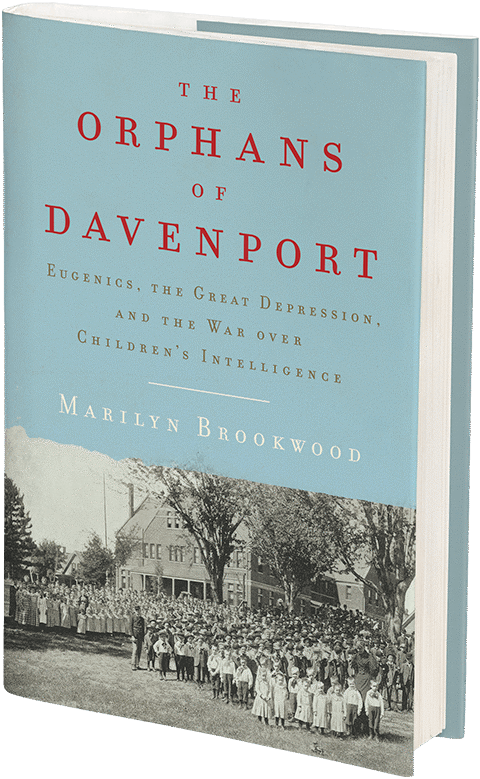The Orphans of Davenport
Eugenics, the Great Depression, and the War over Children’s Intelligence
“A remarkable unsung history, told with empathy, nuance, and a knack for character-driven storytelling.”
— Michael Rodriguez, Library Journal
The fascinating — and eerily timely — tale of the forgotten Depression-era psychologists who launched the modern science of childhood development.
“Doomed from birth” was how psychologist Harold Skeels described two toddler girls at the Iowa Soldiers’ Orphans’ Home in Davenport, Iowa, in 1934. Their IQ scores, added together, totaled just 81. Following prevailing eugenic beliefs of the times, Skeels and his colleague Marie Skodak assumed that the girls had inherited their parents’ low intelligence and were therefore unfit for adoption. The girls were sent to an institution for the “feebleminded” to be cared for by “moron” women. To Skeels and Skodak’s astonishment, under the women’s care, the children’s IQ scores became normal.
Now considered one of the most important scientific findings of the twentieth century, the discovery that environment shapes children’s intelligence was also one of the most fiercely contested — and its origin story has never been told. In The Orphans of Davenport, psychologist and esteemed historian Marilyn Brookwood chronicles how a band of young psychologists in 1930s Iowa shattered the nature-versus-nurture debate and overthrew long-accepted racist and classist views of childhood development.
Transporting readers to a rural Iowa devastated by dust storms and economic collapse, Brookwood reveals just how profoundly unlikely it was for this breakthrough to come from the Iowa Child Welfare Research Station. Funded by the University of Iowa and the Rockefeller Foundation, and modeled on America’s experimental agricultural stations, the Iowa Station was virtually unknown, a backwater compared to the renowned psychology faculties of Stanford, Harvard, and Princeton. Despite the challenges they faced, the Iowa psychologists replicated increased intelligence in thirteen more “retarded” children.
When Skeels published their incredible work, America’s leading psychologists — eugenicists all — attacked and condemned his conclusions. The loudest critic was Lewis M. Terman, who advocated for forced sterilization of low-intelligence women and whose own widely accepted IQ test was threatened by the Iowa research. Terman and his opponents insisted that intelligence was hereditary, and their prestige ensured that the research would be ignored for decades. Remarkably, it was not until the 1960s that a new generation of psychologists accepted environment’s role in intelligence and helped launch the modern field of developmental neuroscience..
Drawing on prodigious archival research, Brookwood reclaims the Iowa researchers as intrepid heroes and movingly recounts the stories of the orphans themselves, many of whom later credited the psychologists with giving them the opportunity to forge successful lives. A radiant story of the power and promise of science to better the lives of us all, The Orphans of Davenport unearths an essential history at a moment when race science is dangerously resurgent.

